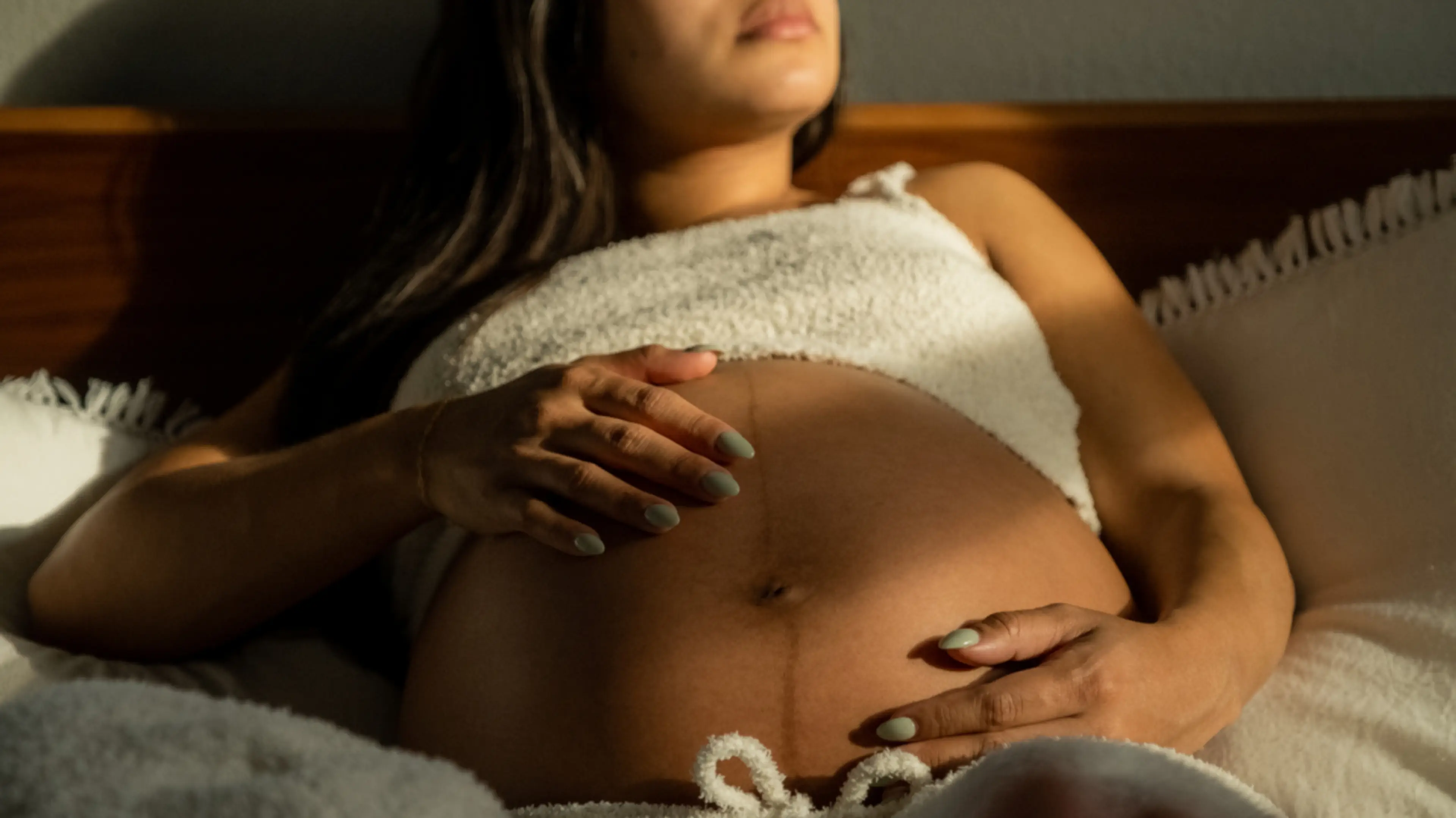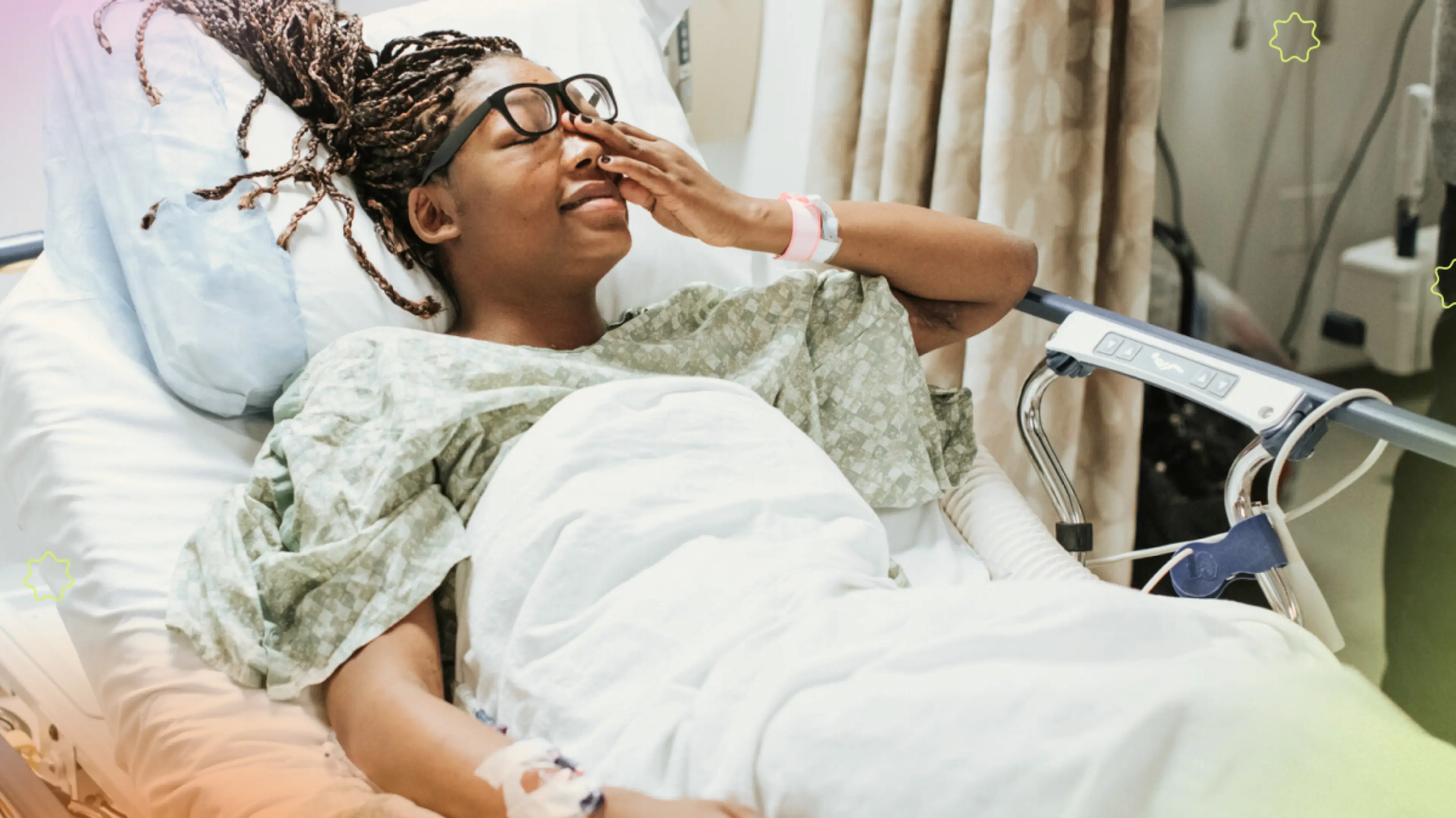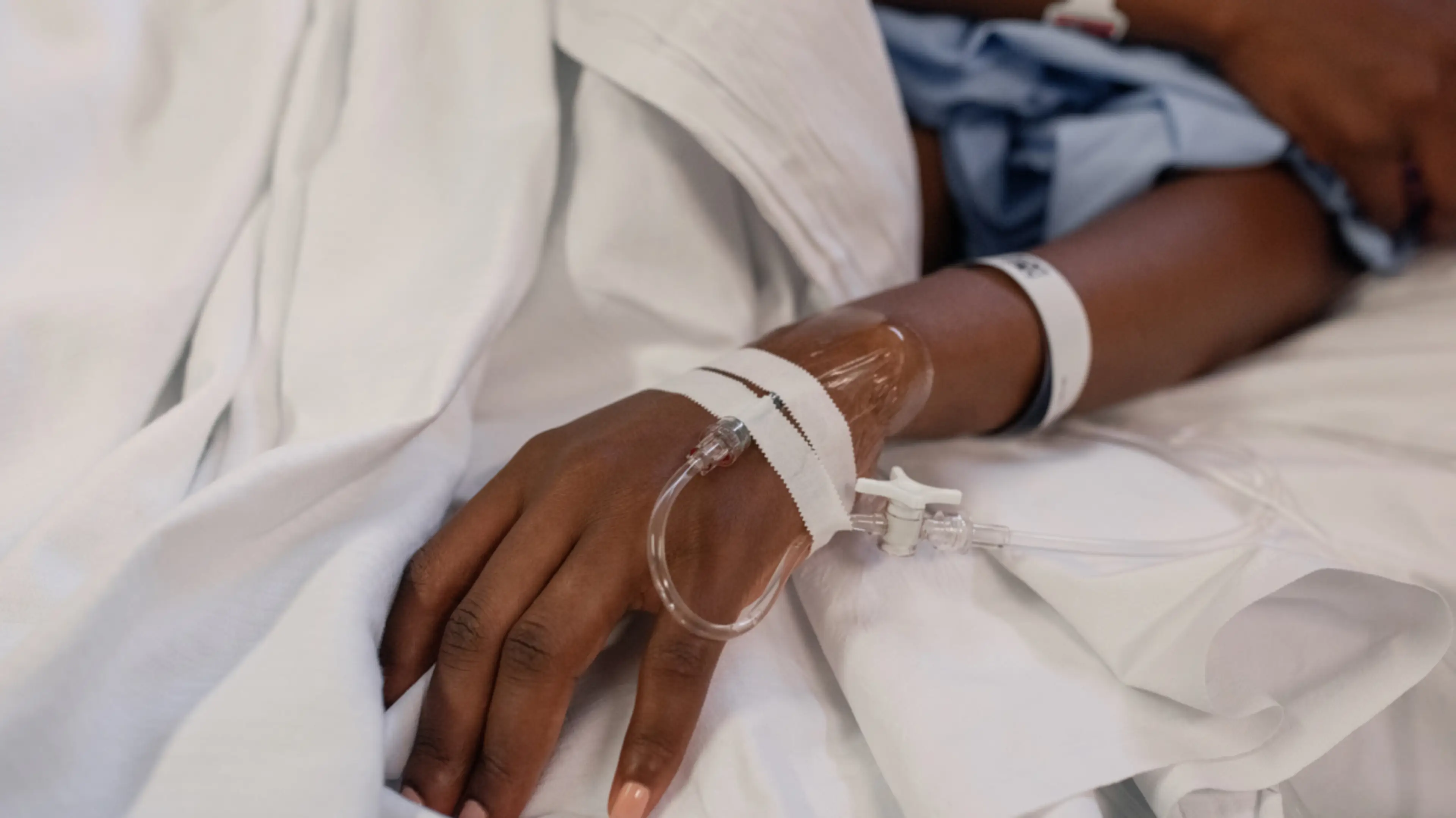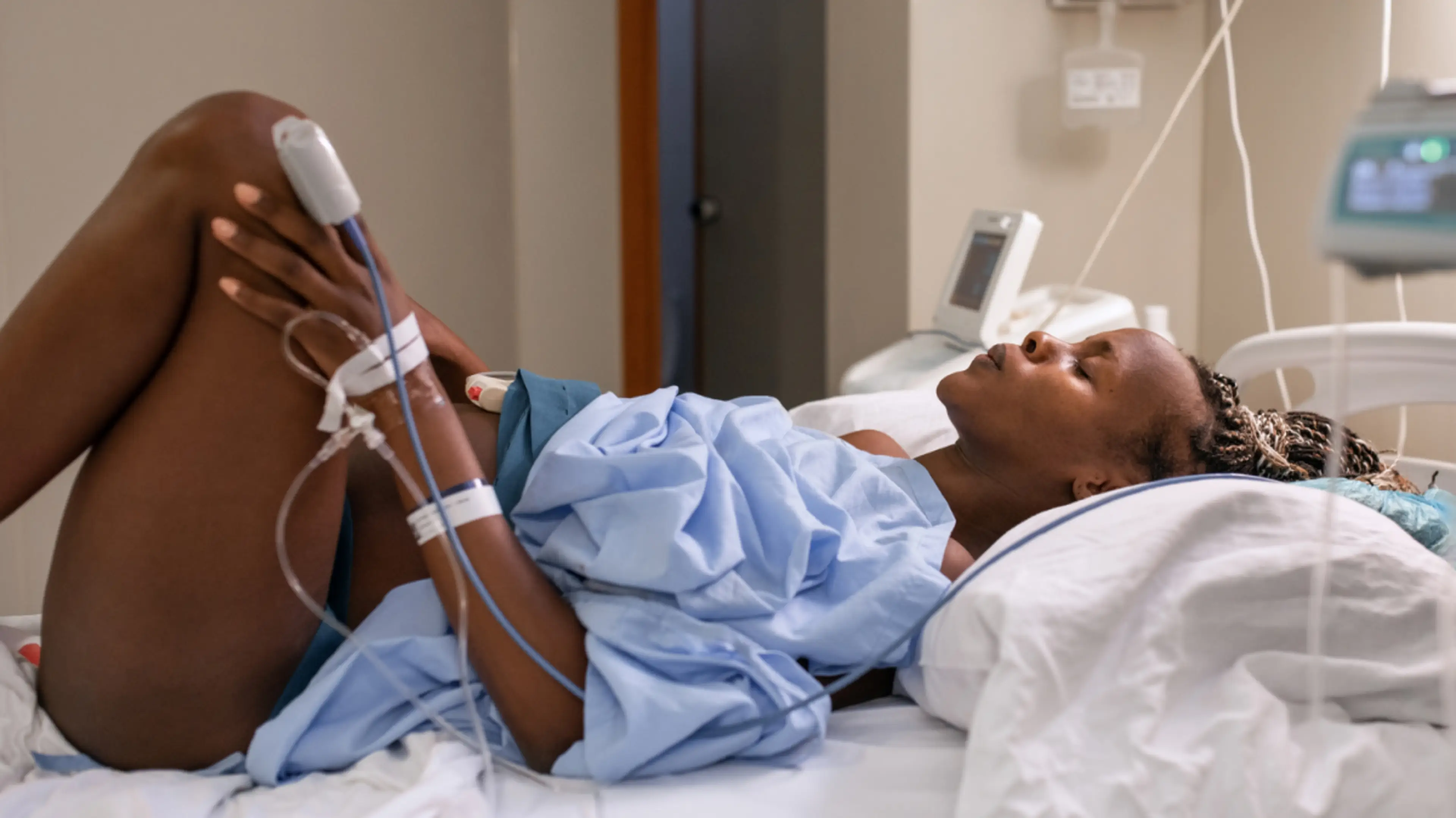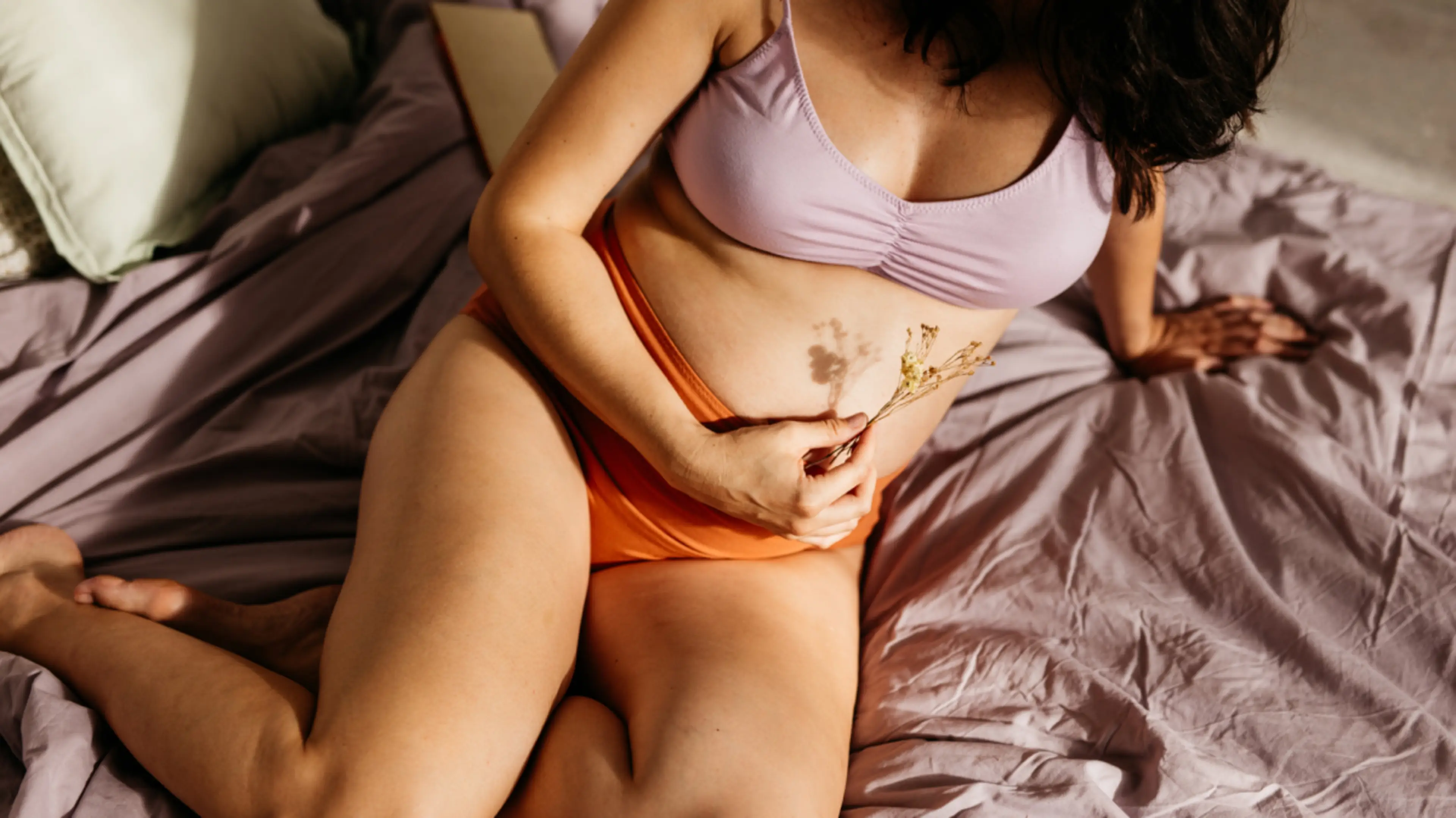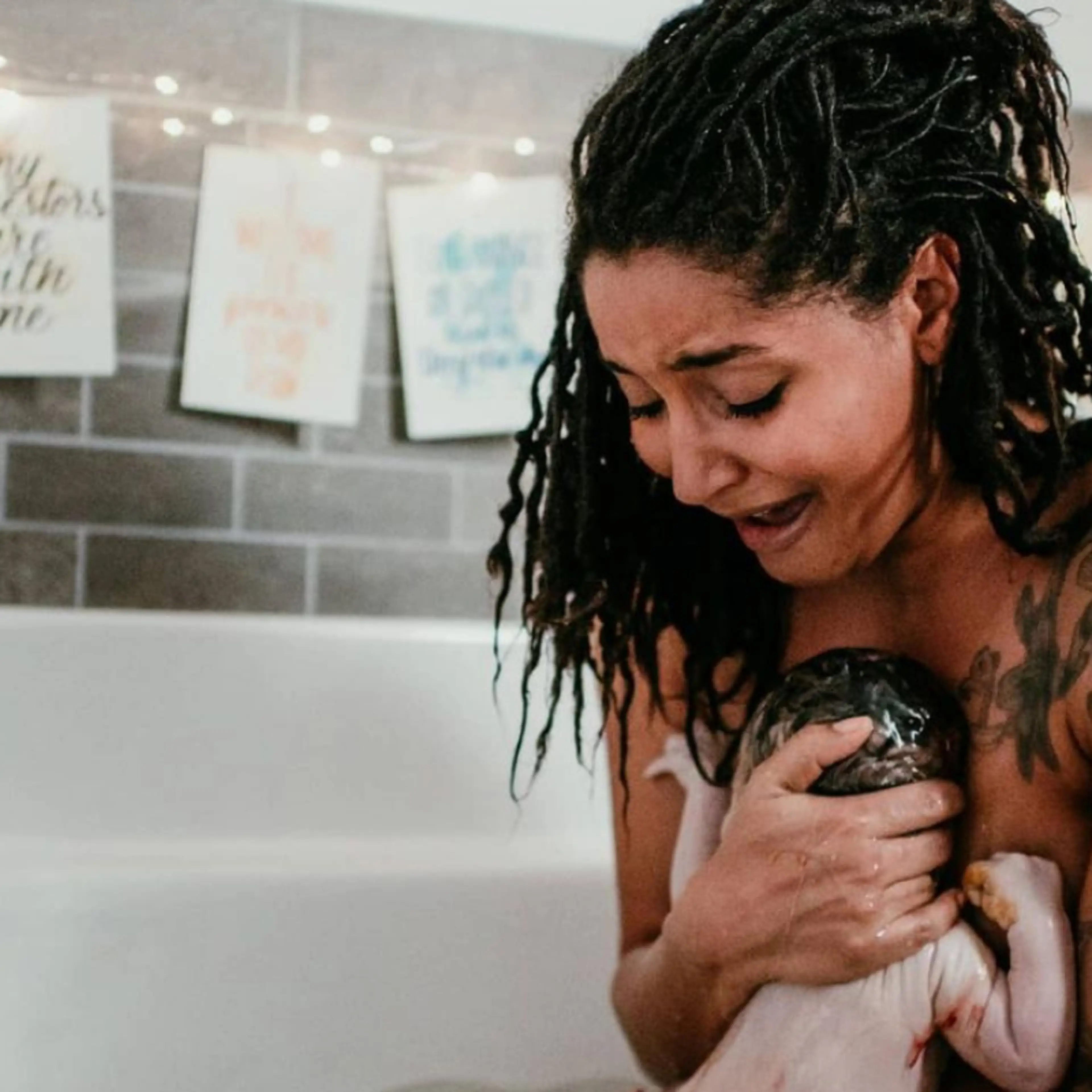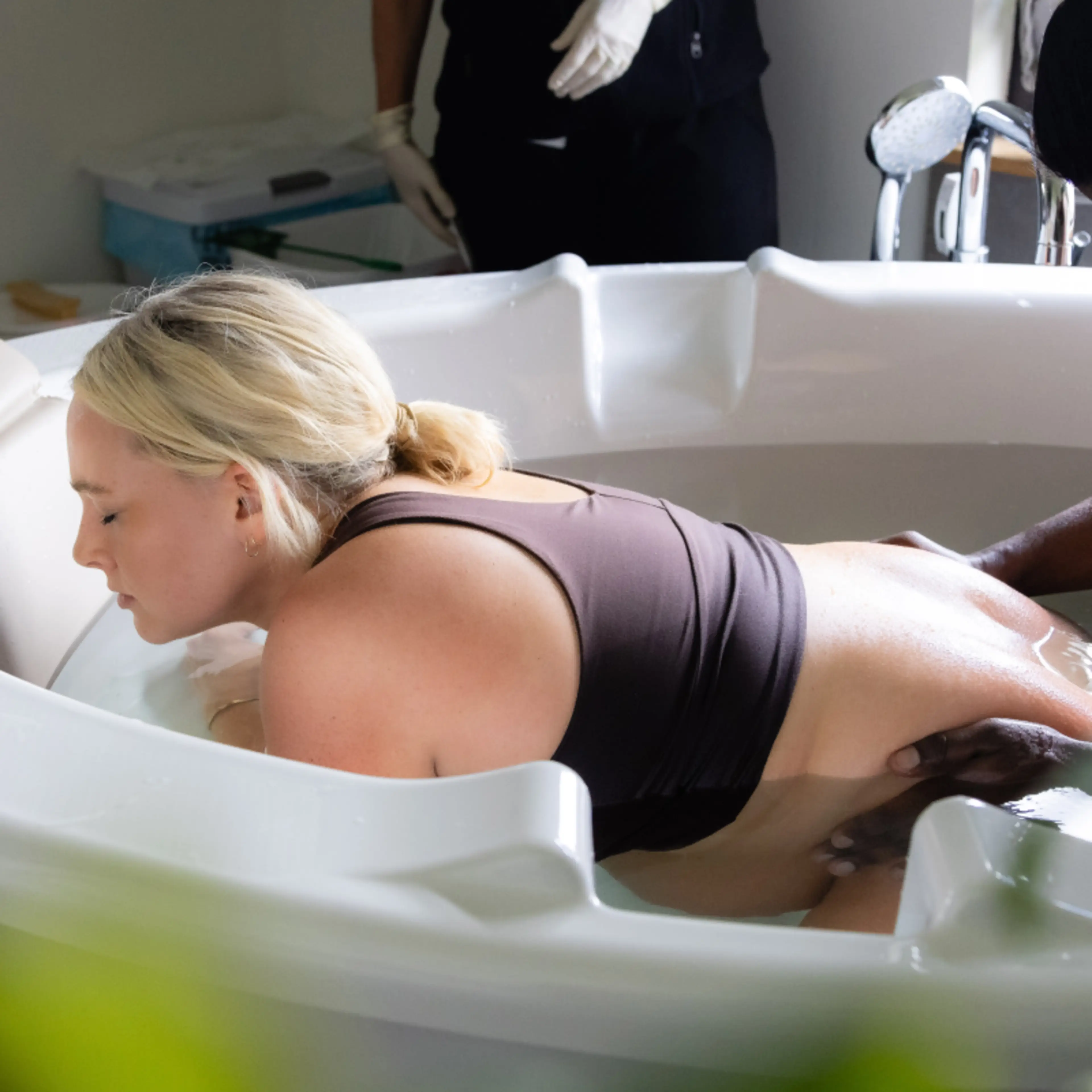As you near your due date, you’re probably starting to wonder whether a belly ache could be mistaken for Braxton Hicks contractions, or worry that you’re not going to know a labor contraction when it happens. We have the answers to all your most pressing questions about what contractions feel like.
What Is a Contraction?
A contraction is a tightening of a pregnant woman’s uterus. The uterine muscle can contract at any time from mid-pregnancy on, and those contractions might feel like nothing at all, or they might be completely overwhelming. You can identify a contraction because your belly will get super hard and tight, and when it’s over, it will soften and relax back to normal.
What Do Labor Contractions Feel Like?
Labor contractions can feel a bit like menstrual cramps at first, but they will intensify and can feel like a dull ache paired with pelvic pressure, according to the Cleveland Clinic1 . The discomfort moves from the top of the belly to the bottom—think of it as pushing your baby down and out. How you may describe the sensation of a contraction can really vary.
“It can feel different for different people. It’s typically described as a very painful menstrual cramp radiating from the back to the front of the abdomen,” Dr. Sara Twogood, MD, board-certified ob-gyn and co-founder of Female Health Education2 .
That said, labor contractions are the real deal. When you go into labor naturally, your water might break, but you’ll know it’s time to have a baby when you start getting these true contractions. According to Johns Hopkins3 , labor contractions help your cervix begin to efface and dilate, and eventually, they help push the baby out of the uterus and make their big debut (yay!)
Eventually, contractions feel like a tidal wave; over time, they’ll become so overwhelmingly strong that there’ll be no denying you have them. (Seriously, mama.) So don’t worry too much about not being able to recognize them. “True labor contractions are relentless and get more painful and more frequent with time,” says Dr. Twogood. “It can feel like a very tight squeeze, like being squished between cars, and then alleviated in a minute or so.”
Regardless of what contractions feel like to you, Johns Hopkins3 reports there are few ways to know they mean you’re really in labor:
They come more often: Labor contractions steadily speed up, happening more and more frequently.
They get stronger: These contractions get more and more intense as time goes on.
They’re unstoppable: Instead of being sporadic, labor contractions become more and more regular. There’s no stopping these guys.
In labor, contractions last for at least 30 seconds each. If you’re having one at least every 15 minutes, you’re probably in labor.
When Should You Go To The Hospital For Labor?
When in doubt, go with the 5-1-1 rule. Go to the hospital when the contractions are five minutes apart and last for one minute each, for at least one hour. But follow your doctor’s advice, since your health history and how far away you are from the hospital or birthing center could factor in. First-time moms tend to be in labor longer than those who’ve had a baby before, so if this isn’t your first rodeo, you probably want to head there pronto if you’re unsure.
What Do Braxton Hicks Contractions Feel Like?
Braxton Hicks contractions are practice contractions that you have randomly before you go into labor. Braxton Hicks contractions can feel like a cramp to some women, and sometimes they get really uncomfortable, where you have to pause and catch your breath. But some women don’t really feel them at all.
Women who’ve been pregnant before are more likely to feel their Braxton Hicks. This may be because they already know for sure what true contractions feel like.
The main difference between these practice contractions and real labor contractions is that Braxton Hicks go away—usually when you change positions, rest or drink a couple of glasses of water. Real contractions don’t—in fact, they keep getting more intense.
What Do Back Contractions Feel Like?
Ah, back labor. These little devils are really painful. Some moms say back contractions feel like severe lower pain that doesn’t go away in between uterine contractions and just intensifies during them.
If back labor happens to you, it could be because of your baby’s positioning. Moving into different positions could ease some of the pain. The Cleveland Clinic4 recommends walking, squatting, lunging, sitting on a ball, or doing pelvic tilts. You may also use natural pain management techniques, like breathing, and/or pain medications, like an epidural, to help manage the pain.
Remember: Contractions are a natural part of labor.

